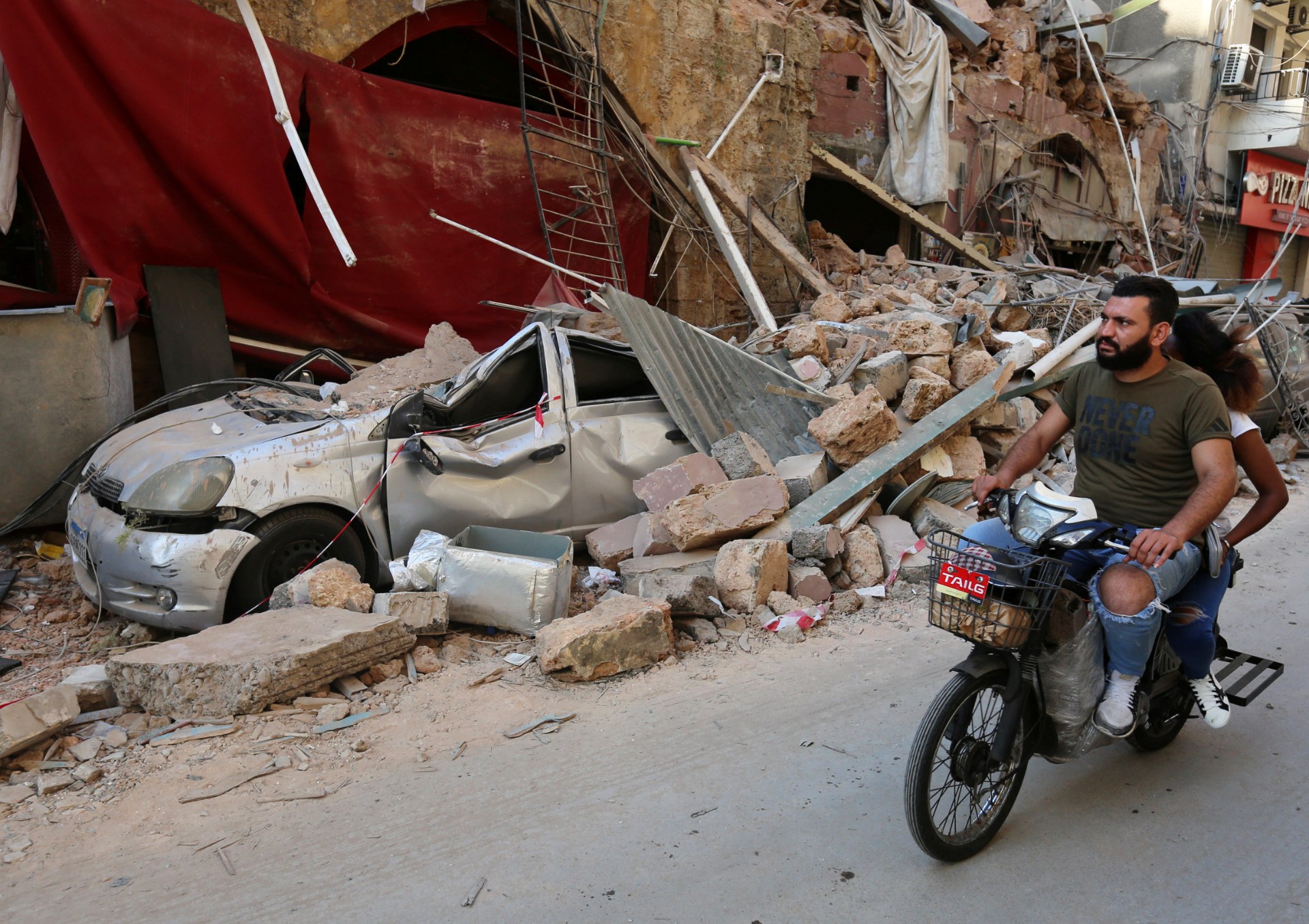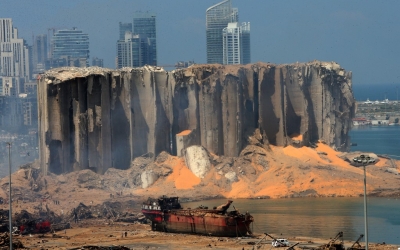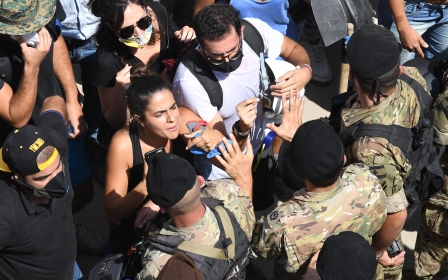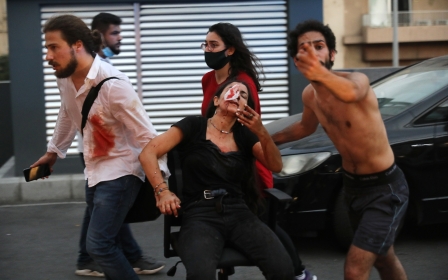Beirut explosion: Rally in Lebanon's capital to restore unrecognisable Gemmayze

On Tuesday, pubs and restaurants in the streets of east Beirut's Gemmayze and Mar Mikhael were full of people looking for a little levity before a renewed coronavirus curfew started at 6pm.
Little did they know that all semblance of normal life, which has already been difficult to maintain during months of crippling economic crisis, was about to be interrupted by an explosion of disastrous proportions.
Beirut woke up the next day to shock and barely recognisable streets. The state declared it a devastated city.
But after being failed by successive governments for decades, many of the city's residents feel all they have is each other, and they spontaneously gathered to help clean up neighbourhoods ravaged by the explosion.
'This disaster that fell upon us is state-made, if we wait for the government’s help we will be doomed'
- Amjad, student
The government announced a state of emergency and deployed forces to carry out rescue missions and clear streets of debris, but civilians still descended to the streets to assist in any way they could.
Stay informed with MEE's newsletters
Sign up to get the latest alerts, insights and analysis, starting with Turkey Unpacked
Amjad, a university student, created a WhatsApp group and called on his friends to gather in afflicted areas.
"This disaster that fell upon us is state-made. If we wait for the government's help we will be doomed,” Amjad tells Middle East Eye as he helps one of Gemmayze’s residents remove rubble from his damaged car.
Young help old
Lebanon is home to numerous NGOs, many of which usually mobilise to respond to crises. However, in times of such tragedy, the act of organising to offer help has become an instinctive reaction.
Along the streets of Mar Mikhael and Gemmayze, two of the capital's most popular districts, young Lebanese, strangers to one another, are cooperating to lift some of the suffering that fell on residents.
Rose, a 90-year-old woman and longtime resident of Gemmayze, lives alone in her house, which was partially destroyed, and has nowhere else to go.
On her still-standing balcony, she watches volunteers clean up the ruins and rubble from the street below. A young voice from below interrupts her reflections, asking if she needs help.
"You already did, you are giving me hope," she answers with a smile on her face.
"I am 90 years old, and during the civil war I have seen brothers separated by politics and neighbours shooting at each other, which can result in frustration and the loss of the will to go on," she tells MEE.
"But when you see the humanity that still exists in so many Lebanese, it gives you a reason to keep on living."
Repeated offers to come up and have a drink are gently and politely declined by the young men and women working below, and they move on to the next building to see who needs help.
Solidarity
Meanwhile, a small motorcycle carrying two men, one in flipflops, passes by. The driver, Ralph, has two boxes of bottled water between his legs, while his friend carries two giant blankets on his shoulders.
When they park in front of one of the damaged buildings, MEE asks them where they are headed.
"Our friends have been helping remove the destroyed windows in this building, I am sure they are thirsty by now. These water boxes are for them," Ralph says, adding as he laughed: "They will repay us at night with a cold beer."
His friend, who wishes to remain unnamed, says many people are staying in homes without windows, as they wait for new glass and windowpanes, but there's heavy demand considering the widespread destruction in the city.
"I picked these winter blankets from my home. We don't need them in this hot weather, and I am sure someone can use them to cover their windows until they get fixed," he says.
Social media has been full of ads by Lebanese of all kinds offering their homes for those who are left without a roof over their heads.
Others post their phone numbers offering any kind of assistance, from food to cash.
In Gemmayze, they're just getting started.
Middle East Eye delivers independent and unrivalled coverage and analysis of the Middle East, North Africa and beyond. To learn more about republishing this content and the associated fees, please fill out this form. More about MEE can be found here.






